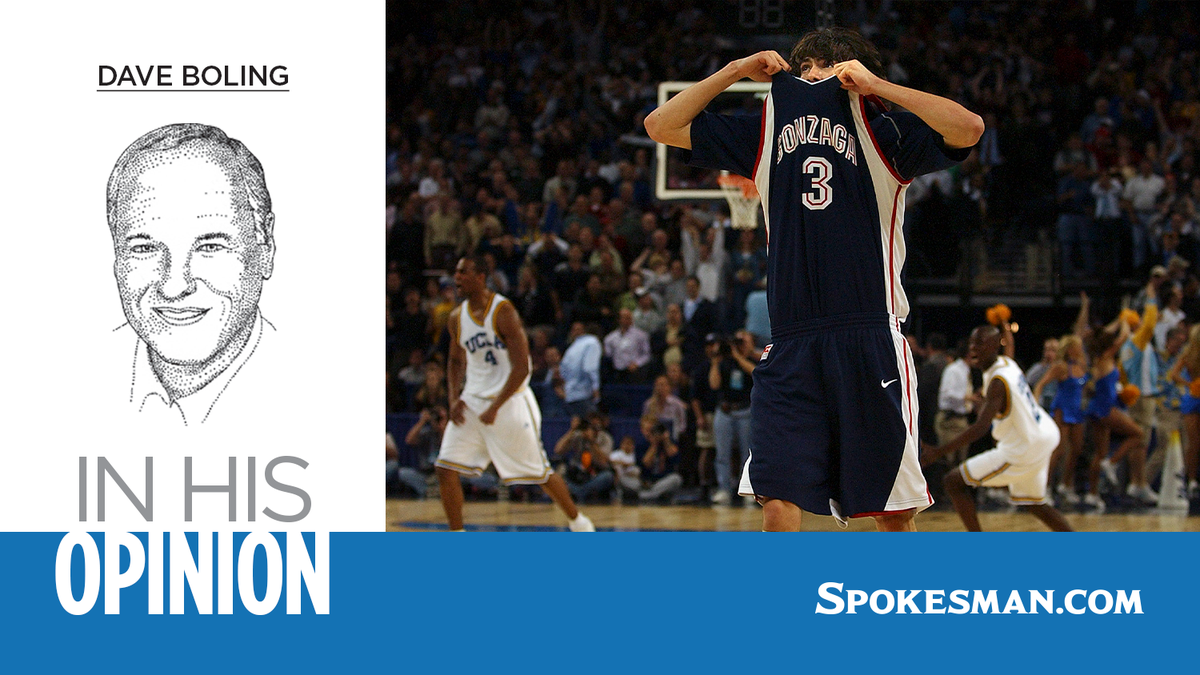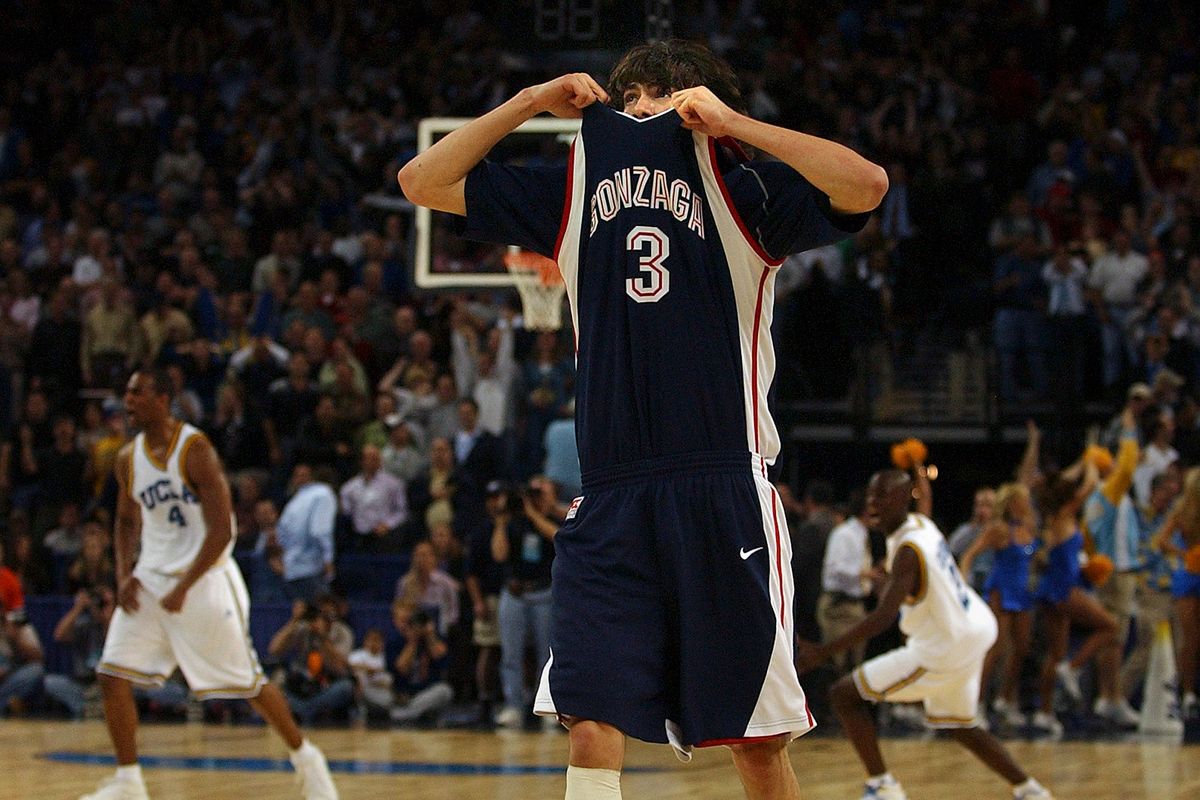Dave Boling: Adam Morrison showed sports are at their best when athletes play from the heart
The fact that Adam Morrison’s tears created a flood of mockery seems one of the historic low moments for that faction of wrong-headed sports observers.
Pity those who don’t understand that sports is best when played from the heart. And also those who can’t relate, perhaps, because they never invested such effort and desire in anything so meaningful.
Granted, when athletes put themselves in the arena, they are open to such things. Still, the Morrison meme seems a lingering injustice.
The topic of the dramatic finish to Gonzaga’s Sweet 16 loss to UCLA in Oakland, California, in 2006 arises as backdrop to the Thursday meeting between the two schools in Las Vegas at this year’s NCAA Sweet 16.
Morrison was the nation’s leading scorer (28 points a game) and co-national player of the year, and is now courtside offering radio commentary of the games.
The Zags were 29-3 at the time, having beaten Xavier in the opener and Indiana in the Round of 32.
From the start, they dominated to a remarkable extent, holding the Bruins without a basket for the first 9 minutes. Picture that: UCLA, the West Region’s No. 2 seed, couldn’t find the basket, making only seven field goals in the first half. The Bruins sank 13 of 15 free throws, though, and trailed at halftime 42-29.
The Bruins fired up (53% shooting) in the second half while the Zags cooled to 36%. With a nine-point lead at 3:27, the Zags failed to score the remainder of the game.
A last-gasp trap by the UCLA press forced a turnover by center J.P. Batista, who had been a tower for the Zags with 18 points and nine rebounds.
A picture from after the buzzer, that ran nationally, showed Morrison face down near midcourt, pulling up his jersey to hide his tears. The scoreboard in the background reads UCLA 73, Gonzaga 71.
How to explain the squandering of a 17-point lead? First of all, make no mistake, UCLA definitely earned this win. Nothing fluky at all. They showed the determination and heart that allowed the Bruins to advance all the way to the title game before losing to Florida.
Although obviously crushed, there were no excuses from Gonzaga, least of all from Morrison. (I was covering the game for the Tacoma News Tribune that night, and the quotes come from my story then).
“I missed the shots,” Morrison said. “We had control for most of the game. If you don’t execute down the stretch … we just made a few missteps …”
He paused several times trying to collect himself, trying to find the words, any kind of an explanation that made sense of it.
I remember this being one of those awkward times as a reporter that felt intrusive – leave the young man to start coping with the heartbreak. But Morrison stood in there, head bowed a bit but still tall, hair draping his eyes, and he finally arrived at the single truest thing he could say “… I hate losing.”
Here’s the part of this whole theatric moment that Morrison had the perception to value at the time – a picture of which would have better captured the essence of the game, the duality of sports, than the one that would later be so foolishly mocked.
UCLA’s Arron Afflalo, who spent most of the game guarding Morrison, and who frustratingly watched Morrison pump in 24 points, went over to the prostrate Zag and tried to help him up and offer consolation.
“I was running around celebrating with the rest of my team,” Afflalo said. “But I saw him laying there, in tears a little bit. I just felt for him. He’s a great player. There’s really no reason for him – outside the fact that he’s a competitor and wanted to win – that he has to cry. He’s a great player and he’s going to have a great NBA career. He should definitely keep his head up.”
It meant the world to Morrison.
“That’s a sign of a great program and great people,” he said. “(Afflalo) had enough guts, as a man, to come over in their moment of victory and pick me off the floor. If I could thank them, I would. That’s more than just basketball.”
More than basketball. Yes, perfect.
Just like tears are about much more than just losing and disappointment, and reflect a depth of emotion far more than any misperceived absence of inner strength.

